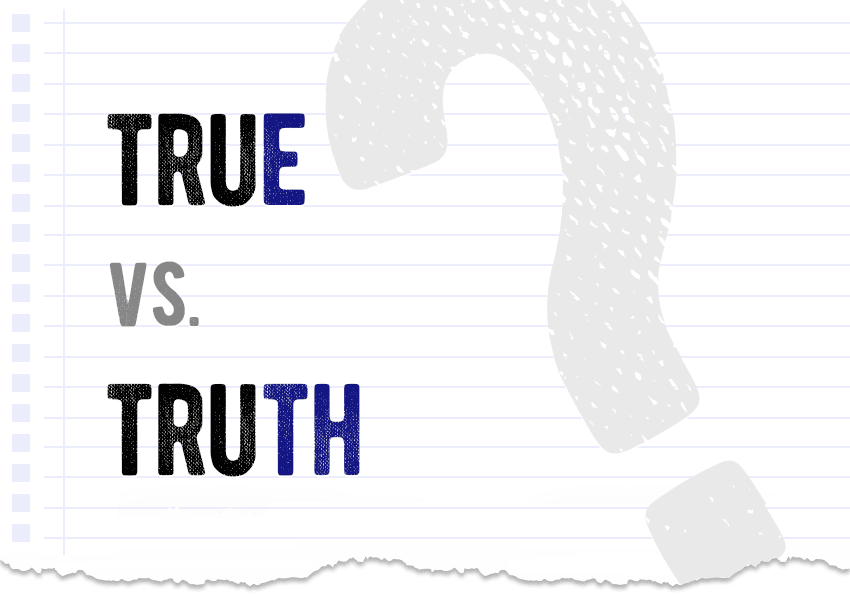True vs. truth – what’s the difference?
True vs. truth. Truth be told, it is safe to assume that everyone has come across the words true and truth. However, to tell one from the other is a whole different story. Let’s dig into the details together!

True vs. truth – what’s the difference?
For starters, true and truth are derivatives of the same parent word, but they represent different parts of speech. True is an adjective, while truth is a noun. The word true means something is based on facts, not imagined. Truth, on the other hand, refers to the real facts about something.
True vs. truth – when to use them?
The adjective true shall be used to indicate that something is real. Thus, it often appears adjacent to a noun or a verb, or in phrases, such as come true, to be true to somebody, or ring true.
The noun truth may be either used in its basic form or be a part of expressions, such as to tell the truth, the naked truth, or the gospel truth. Moreover, truth is a part of well-known sayings or proverbs: the truth will set you free, or in wine, there is truth.
True vs. truth. Examples of true and truth in sentences
Regardless of the court’s decision and or its potential unwavering support to its political base, the truth will come out whether it is in trial, after summary judgment, one day, one week, one month, one year or 10 years.
Peter D. Kramer, Ed Harris, Amy Neff Roth, USA Today
The film follows Kunis’s Ani, a writer whose seemingly perfect life starts to unravel when a true-crime documentary forces her to confront a school shooting she experienced as a teenager.
Ellie Harrison, The Independent


